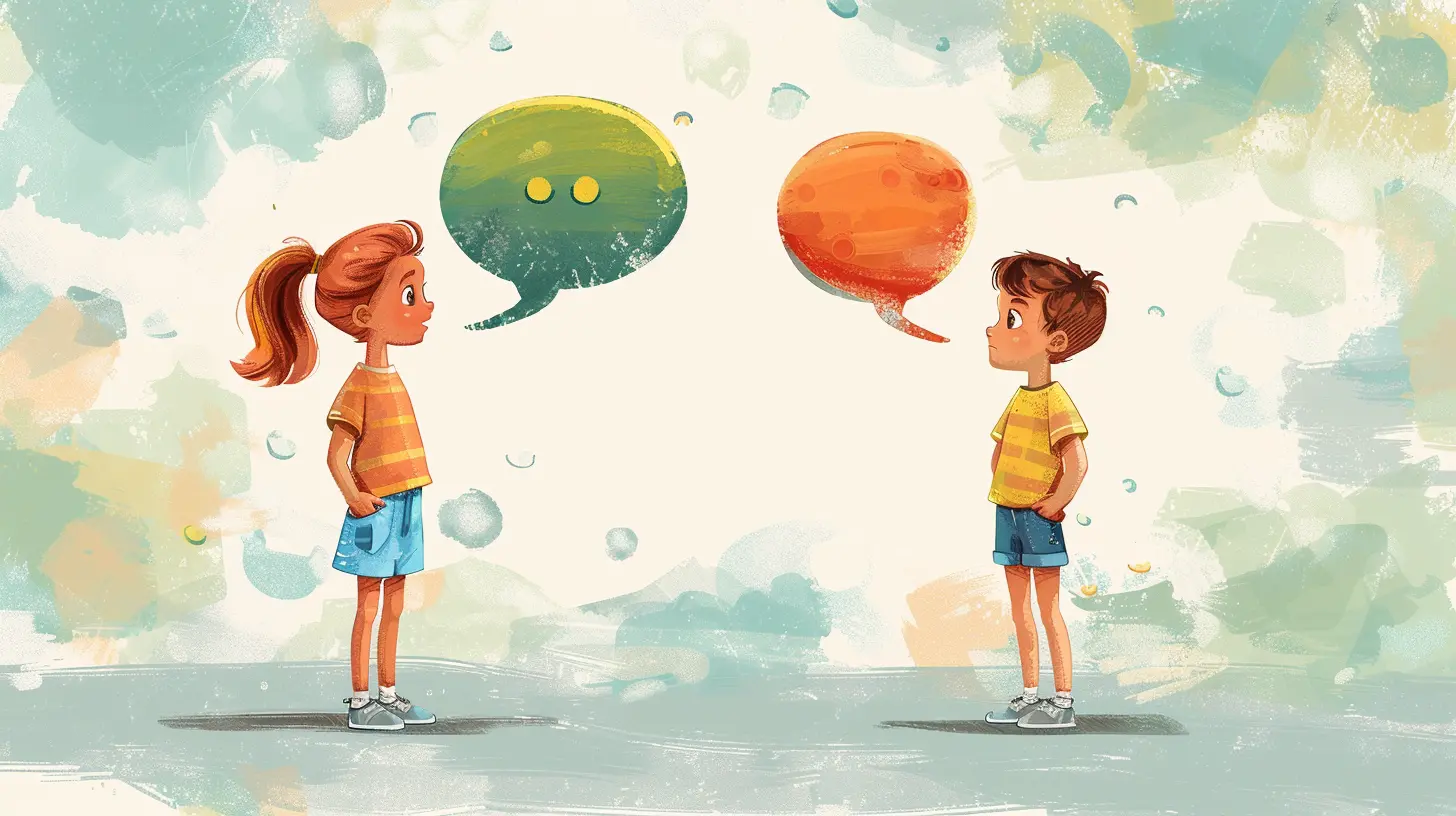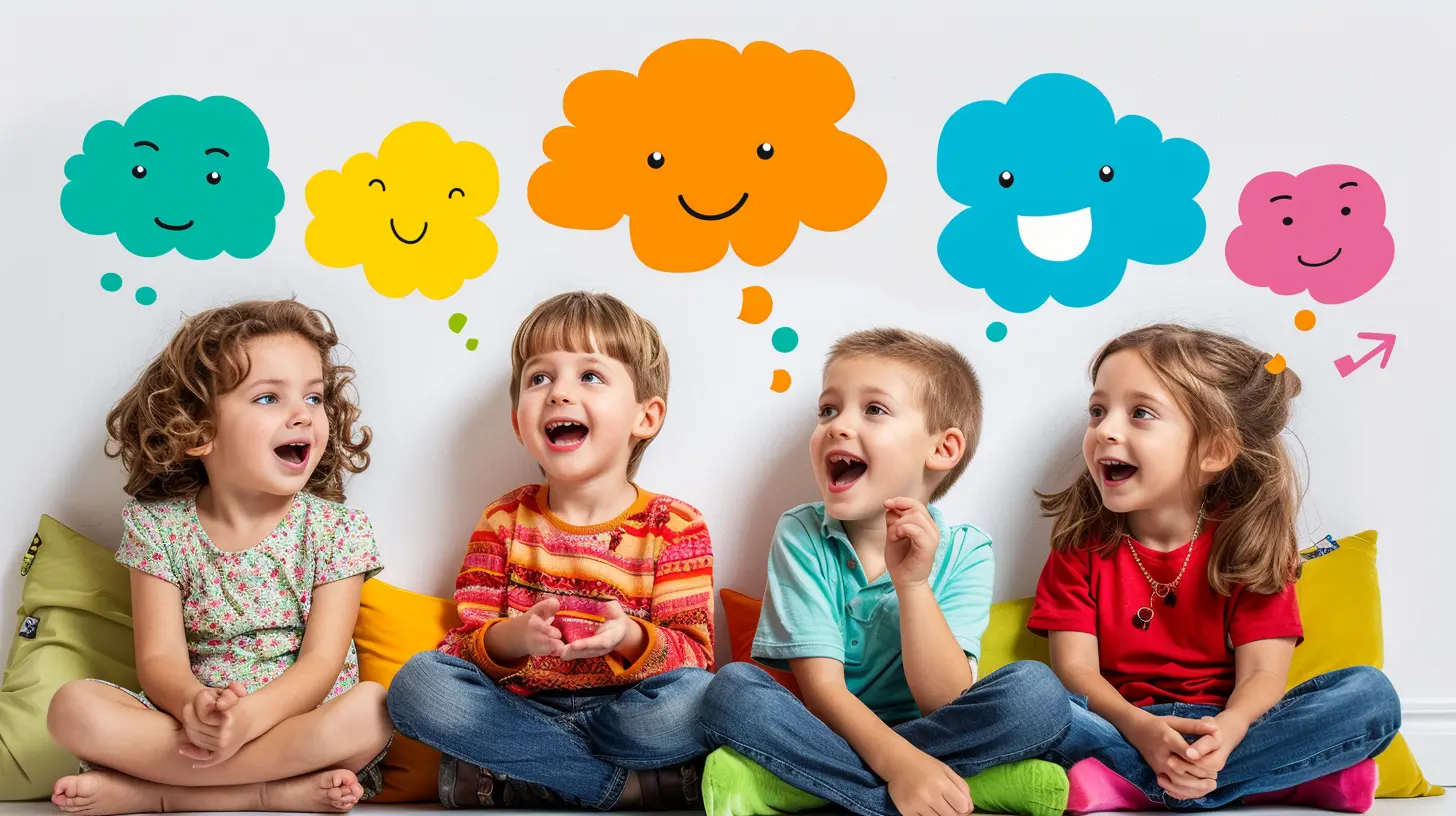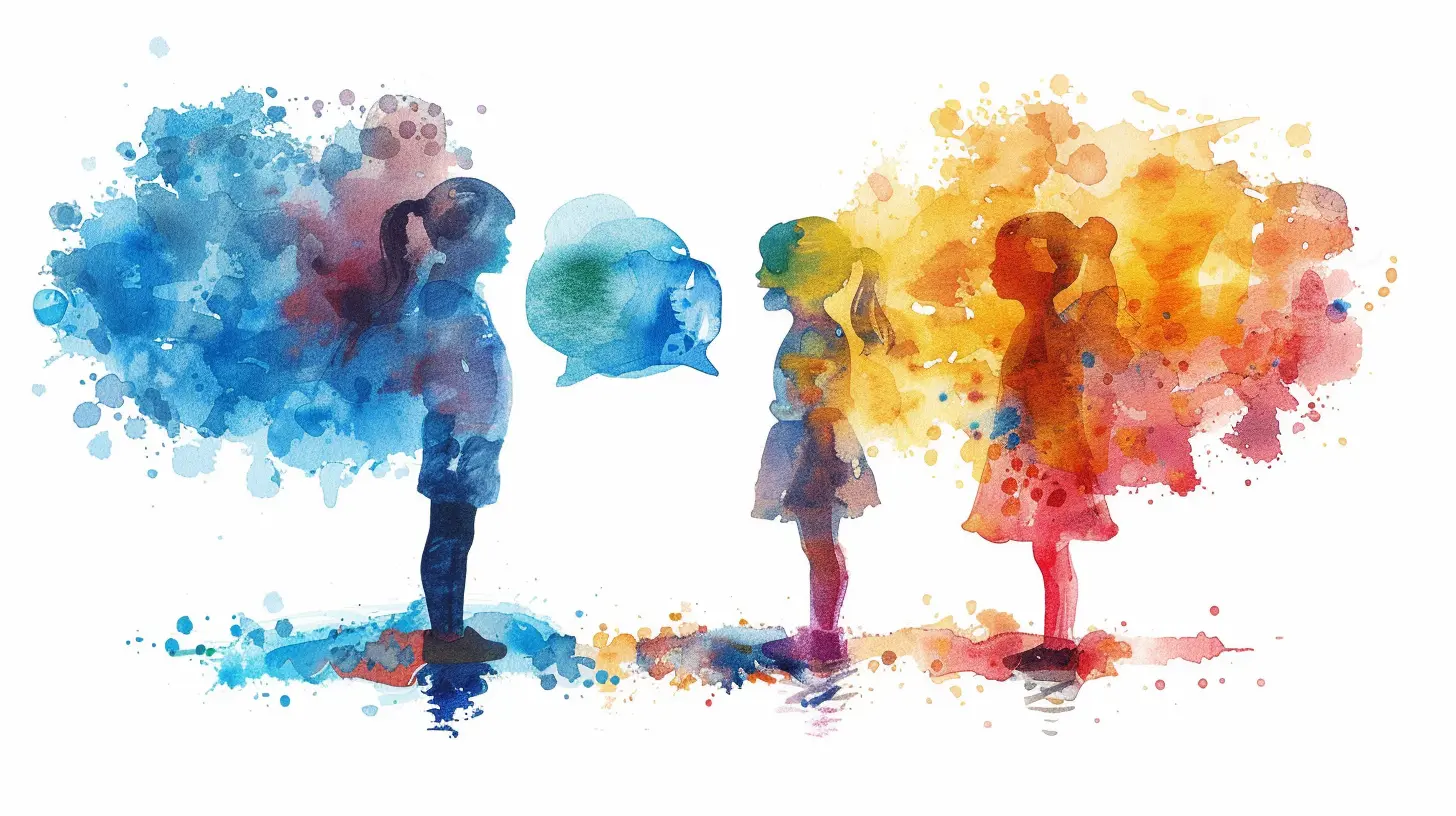Healthy Communication Habits to Start Early
8 August 2025
Hey there, parent warriors! 👋
Let’s have a heart-to-heart—because today, we’re talking about something incredibly important yet often overlooked: healthy communication habits. Yep, the kind that start early, stick for life, and shape your child into a confident, emotionally intelligent adult.
Sounds like a big deal? That’s because it is.
Sure, we all get busy juggling work, laundry, and endless snack requests, but cultivating strong communication with your kids doesn’t need grand gestures or hour-long lectures. It starts with the little things. And the earlier you start, the better.
So grab your coffee, sit back, and let’s chat about how to build communication habits that not only help your child now but set the stage for strong relationships down the road.
Why Early Communication Habits Matter (More Than You Think)
Let’s get real for a moment—kids are sponges. From the moment they can babble, they’re watching, listening, and studying how you talk and respond. And not just to them, but to everyone around you.So when we talk about building healthy communication habits early, we aren't just teaching kids how to speak their mind. We’re helping them:
- Manage big feelings
- Handle conflict with grace
- Ask for what they need (without meltdowns!)
- Build empathy and understanding
Pretty powerful stuff, huh?
Think of it like this: communication is the bridge between your child’s internal world and the outer world. If that bridge is strong, they’ll cross life’s challenges with way more confidence.
Start with You: Be the Model
Here’s the thing: kids learn by example.You can say “use your words” all day long, but if you’re yelling at the driver who cut you off or giving your partner the cold shoulder during a disagreement, guess what your kid is soaking up?
Yup. Not the words, but the behavior.
So, start with yourself. Make a conscious effort to:
- Speak calmly (even when you're boiling inside)
- Listen without interrupting
- Admit when you're wrong (this is gold)
- Express feelings instead of bottling them up
These simple actions speak louder than any parenting lecture you’ll ever give.
Make Time for Conversations (Yes, Even the Silly Ones)
You know those random stories your kid starts mid-dinner about a talking lizard or robot aliens? Don’t dismiss them. Lean in.When you make time for the little talks, you’re building trust for the big talks later on—like questions about friendships, bullying, puberty, or you know, life stuff.
Try this:
- Schedule “unplugged” time each day for chatting
- Ask open-ended questions like “What was the funniest part of your day?”
- Use car rides or bedtime as conversation windows—those quiet moments are golden!
The more space you give for connection now, the more they'll come to you later when it really counts.
Listen Like You Mean It
Okay, let’s talk about listening, not just hearing. There’s a big difference.Imagine telling a friend something important, and they’re half-checking their phone while nodding along. Annoying, right?
Kids feel that too. When they’re talking—whether it’s about a Lego creation or how someone took their crayon—give them your full attention.
Here’s how to show you’re REALLY listening:
- Get on their level (eye contact is huge)
- Nod and reflect back what they’re saying (“So, you felt sad when that happened”)
- Avoid rushing to fix things—sometimes they just want to be heard
When you truly listen, you’re showing your child their voice matters. That’s a big deal.
Teach Feelings with Words (Because “Mad” Isn’t Always Mad)
If kids could describe every emotion in their toolbox, tantrums would probably drop 75%. Okay, maybe not exactly, but you get the idea.The earlier you help your child label their emotions, the better they’ll manage them. Instead of throwing toys, they learn to say “I’m frustrated.” That’s a win.
You can help by:
- Talking openly about feelings (yours and theirs)
- Using books or shows to discuss how characters feel
- Playing games like “How do you think he feels?” during story time
Remember: Emotional vocabulary = Emotional intelligence. And who doesn’t want that for their kid?
Praise Effort in Communication
Positive reinforcement goes a long way.When your child tries to express themselves—especially in tough moments—acknowledge it.
Say things like:
- “I’m proud of you for telling me how you feel.”
- “That was so brave to share.”
- “Great job using your words instead of yelling.”
It’s simple, but it reinforces the behavior you want to see more of. Everyone loves a little pat on the back, right?
Set Boundaries...Lovingly
Communication isn’t all sunshine and rainbows. Kids need to learn that how they say something matters just as much as what they say.It’s okay to say:
- “I hear you're upset, but it's not okay to scream.”
- “We can talk about that more calmly.”
- “You can feel angry, but you can't hit.”
Teaching respectful communication means setting limits—with love. Think of boundaries as bumpers in a bowling alley. They keep the conversation heading in the right direction without veering off course.
Practice Active Listening Games
Want to make communication fun? Turn it into a game!Here are a few easy ways to boost listening and speaking skills:
1. “Whisper Chain”
Start with a sentence and whisper it down the line—can they keep the message intact?2. “Feelings Charades”
Act out emotions and guess what they are—helps build empathy and emotional vocab.3. “Two Truths and a Lie”
Great for older kids—keeps them talking and sharpens their storytelling!Games like these build great habits without it feeling like a lesson. Bonus: they usually come with giggles.
Create a Safe Space for Big Talks
As kids grow older, conversations get more complex. But if you’ve built trust early, those big talks become easier.Let your kids know they can come to you without fear of punishment or judgment. That doesn’t mean letting everything slide—but it does mean creating a space where honesty is valued.
Here’s how to keep the door open:
- Stay calm (even when you hear something shocking)
- Thank them for being honest
- Ask questions before reacting
Think of yourself as their “communication coach,” not the referee.
Talk About Mistakes (Yours Too)
Hey, we all mess up. Sometimes we lose our cool or say the wrong thing.But those are teaching moments too.
When you own your mistakes—especially how you communicate—you show your child that nobody's perfect, and it's okay to apologize and try again.
Say stuff like:
- “I shouldn’t have raised my voice earlier. I was frustrated, but I’m sorry.”
- “I didn’t listen well today. Can we try again?”
This teaches humility, responsibility, and the power of repairing relationships. Real-life superhero stuff!
Grow With Your Child
The way you talk with your toddler won’t be the same as when they’re ten or fifteen. And that’s okay.Healthy communication habits evolve—and the key is staying flexible.
As your child grows, keep checking in with how they’re feeling, what they’re thinking, and how they want to be spoken to. Let them see that respectful communication is a two-way street.
You’re not just guiding them—you’re learning together.
Final Thoughts: It’s a Journey, Not a Sprint
If you’re thinking, “This sounds like a lot,” take a deep breath. You don’t have to be a perfect communicator to raise one.Start with one habit at a time. Focus on connection. Keep showing up with love—even on the messy, loud, exhausting days. Your effort matters more than you think.
Healthy communication isn't just a skill. It's a superpower. And it's one you can help your child build, starting right now.
So go ahead, have that silly chat, ask how their day went, listen with heart, and watch your child bloom—one honest, heartfelt conversation at a time.
all images in this post were generated using AI tools
Category:
Communication With KidsAuthor:

Kelly Snow
Discussion
rate this article
1 comments
Nell Pope
Great insights on fostering healthy communication! Encouraging open dialogues and active listening from a young age truly builds strong, trusting parent-child relationships.
August 18, 2025 at 4:22 PM

Kelly Snow
Thank you! I'm glad you found the insights valuable. Open communication is indeed key to nurturing strong relationships!


